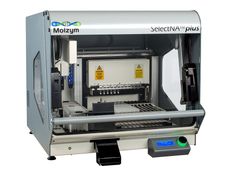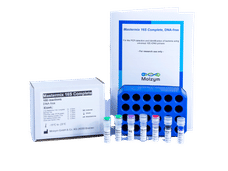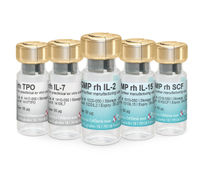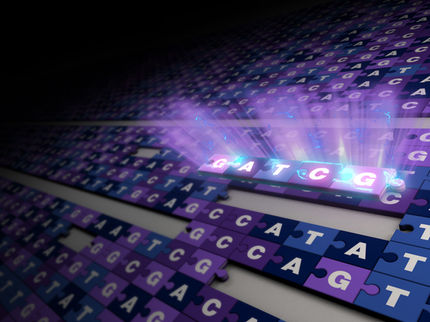Scripps research team wins $5.1 million to develop DNA sequencing technology
Scripps Research Institute Professor Reza Ghadiri, Ph.D., has been awarded a four-year, $5.1 million grant as part of a National Institutes of Health (NIH) initiative to spur the development of the next generation of DNA sequencing technologies, which could enable biomedical researchers and health care workers to routinely sequence a person's DNA. With the new grant, funded by the NIH's human genome Research Institute (NHGRI), the team will further develop an approach they call "nanopore strand sequencing."
In nanopore strand sequencing, a single strand of DNA moves through a narrow pore and the bases are identified as they pass a reading head. Ghadiri notes that this is a rapid real-time technology; it does not require the time-consuming cyclic addition of reagents.
"After implementing a chip with a million pores, we expect nanopore sequencing to achieve a 15-minute genome by 2014 with a very short sample preparation time," said Ghadiri, whose group will work with the laboratories of Hagan Bayley of the University of Oxford and Amit Meller of Boston University on the project. "In addition, nanopore sequencing will be able to identify modified bases and to sequence RNA directly."
The new grant is part of an $18 million round of funding announced this week by the NHGRI, whose current goal is to make it possible to sequence a genome for $1,000 or less.
Over the past decade, DNA sequencing costs have fallen dramatically fueled in large part by tools, technologies and process improvements developed as part of the successful effort to sequence the human genome. NHGRI subsequently launched programs in 2004 to accelerate the development of sequencing technologies and the rate of reduction of genome sequencing cost. Last year, the program surpassed the goal of producing high quality genome sequence of 3 billion base pairs – the amount of DNA found in humans and other mammals – for $100,000. The cost to sequence a human genome has now dipped below $40,000.
The new grants will fund ten investigator teams to develop revolutionary technologies that would make it possible to quickly and cost-efficiently sequence a genome, enabling the use of sequencing as part of routine medical care.
Most read news
Other news from the department science
These products might interest you

Micro-Dx™ CE IVD by Molzym
Fully automated from sample to PCR analysis
Rapid identification of bacteria and fungi without time-consuming cultivation

DNA-free Taq Polymerases and Mastermixes by Molzym
DNA-free reagents for unrivalled sensitivity in molecular biology
Purity that makes the difference

DNA/RNA Shield™ SafeCollect Collection Kits by Zymo Research
Sample collection devices for simple & safe at-home testing
Best user experience for secure self-collection

Recombumin® Elite by Sartorius
ICHQ7 cGMP-compliant albumin for biotechnological applications
Increase consistency and safety for gene therapies and vaccines

CellGenix® Growth Factors and Cytokines by Sartorius
Recombinant growth factors without animal products
Optimised cell culture for T cells and MSCs in gene therapy

Greener Alternative Products by Merck Life Science
Sustainable laboratory products for environmentally conscious research
Over 2,500 ecological alternatives to reduce your laboratory footprint

Get the life science industry in your inbox
By submitting this form you agree that LUMITOS AG will send you the newsletter(s) selected above by email. Your data will not be passed on to third parties. Your data will be stored and processed in accordance with our data protection regulations. LUMITOS may contact you by email for the purpose of advertising or market and opinion surveys. You can revoke your consent at any time without giving reasons to LUMITOS AG, Ernst-Augustin-Str. 2, 12489 Berlin, Germany or by e-mail at revoke@lumitos.com with effect for the future. In addition, each email contains a link to unsubscribe from the corresponding newsletter.

















































